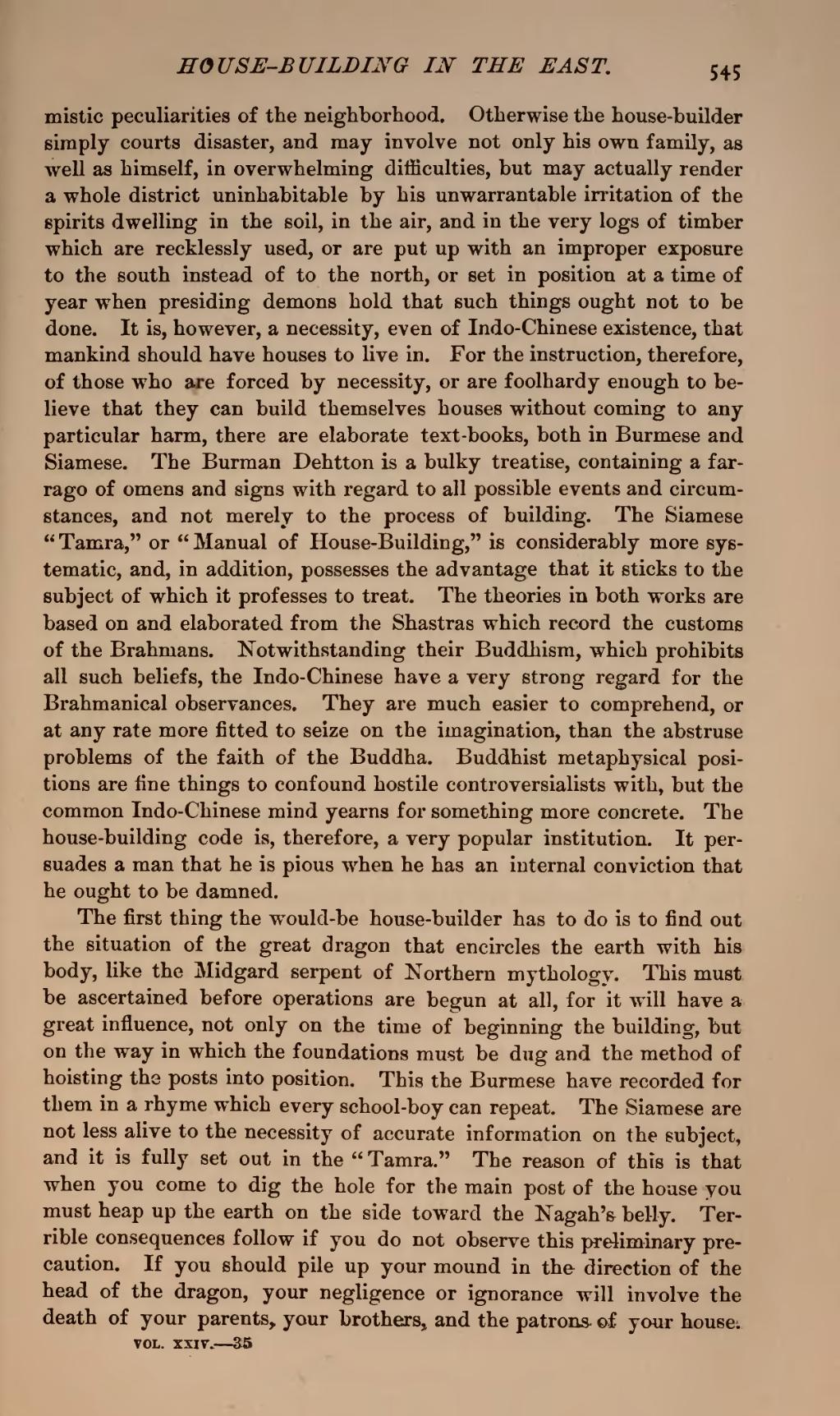mistic peculiarities of the neighborhood. Otherwise the house-builder simply courts disaster, and may involve not only his own family, as well as himself, in overwhelming difficulties, but may actually render a whole district uninhabitable by his unwarrantable irritation of the spirits dwelling in the soil, in the air, and in the very logs of timber which are recklessly used, or are put up with an improper exposure to the south instead of to the north, or set in position at a time of year when presiding demons hold that such things ought not to be done. It is, however, a necessity, even of Indo-Chinese existence, that mankind should have houses to live in. For the instruction, therefore, of those who are forced by necessity, or are foolhardy enough to believe that they can build themselves houses without coming to any particular harm, there are elaborate text-books, both in Burmese and Siamese. The Burman Dehtton is a bulky treatise, containing a farrago of omens and signs with regard to all possible events and circumstances, and not merely to the process of building. The Siamese "Tamra," or "Manual of House-Building," is considerably more systematic, and, in addition, possesses the advantage that it sticks to the subject of which it professes to treat. The theories in both works are based on and elaborated from the Shastras which record the customs of the Brahmans. Notwithstanding their Buddhism, which prohibits all such beliefs, the Indo-Chinese have a very strong regard for the Brahmanical observances. They are much easier to comprehend, or at any rate more fitted to seize on the imagination, than the abstruse problems of the faith of the Buddha. Buddhist metaphysical positions are fine things to confound hostile controversialists with, but the common Indo-Chinese mind yearns for something more concrete. The house-building code is, therefore, a very popular institution. It persuades a man that he is pious when he has an internal conviction that he ought to be damned.
The first thing the would-be house-builder has to do is to find out the situation of the great dragon that encircles the earth with his body, like the Midgard serpent of Northern mythology. This must be ascertained before operations are begun at all, for it will have a great influence, not only on the time of beginning the building, but on the way in which the foundations must be dug and the method of hoisting the posts into position. This the Burmese have recorded for them in a rhyme which every school-boy can repeat. The Siamese are not less alive to the necessity of accurate information on the subject, and it is fully set out in the "Tamra." The reason of this is that when you come to dig the hole for the main post of the house you must heap up the earth on the side toward the Nagah's belly. Terrible consequences follow if you do not observe this preliminary precaution. If you should pile up your mound in the direction of the head of the dragon, your negligence or ignorance will involve the death of your parents, your brothers, and the patrons, of your house.VOL. XXIV.—35

